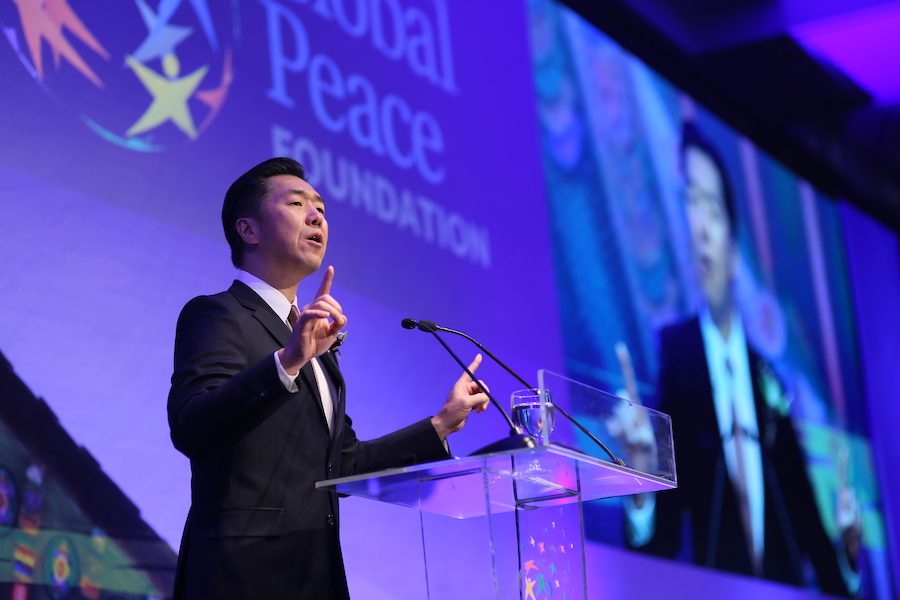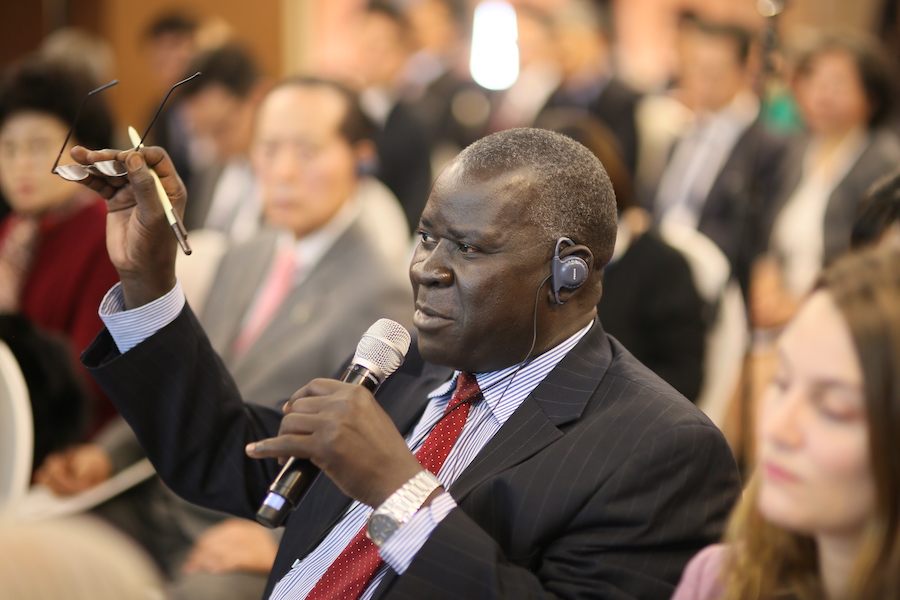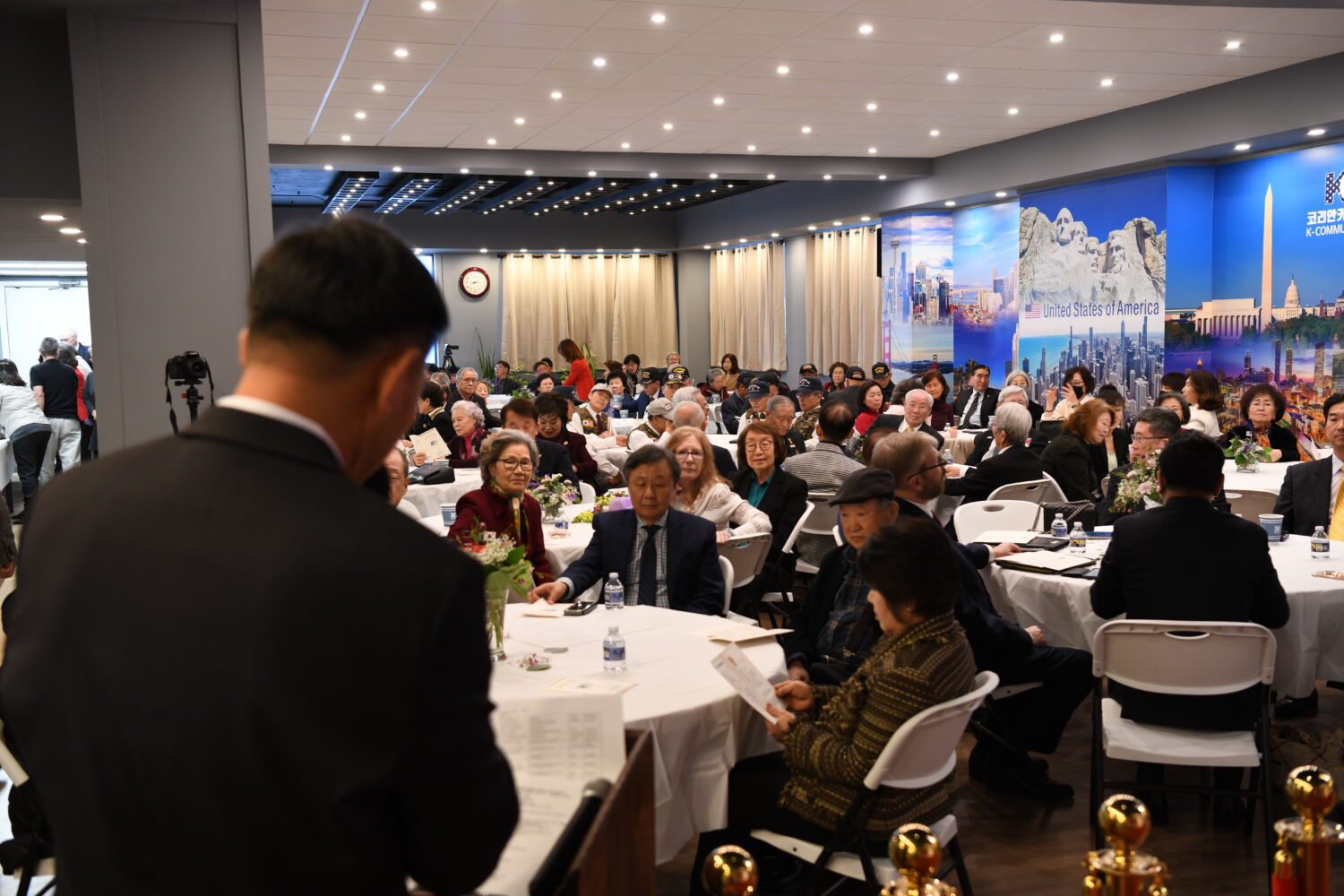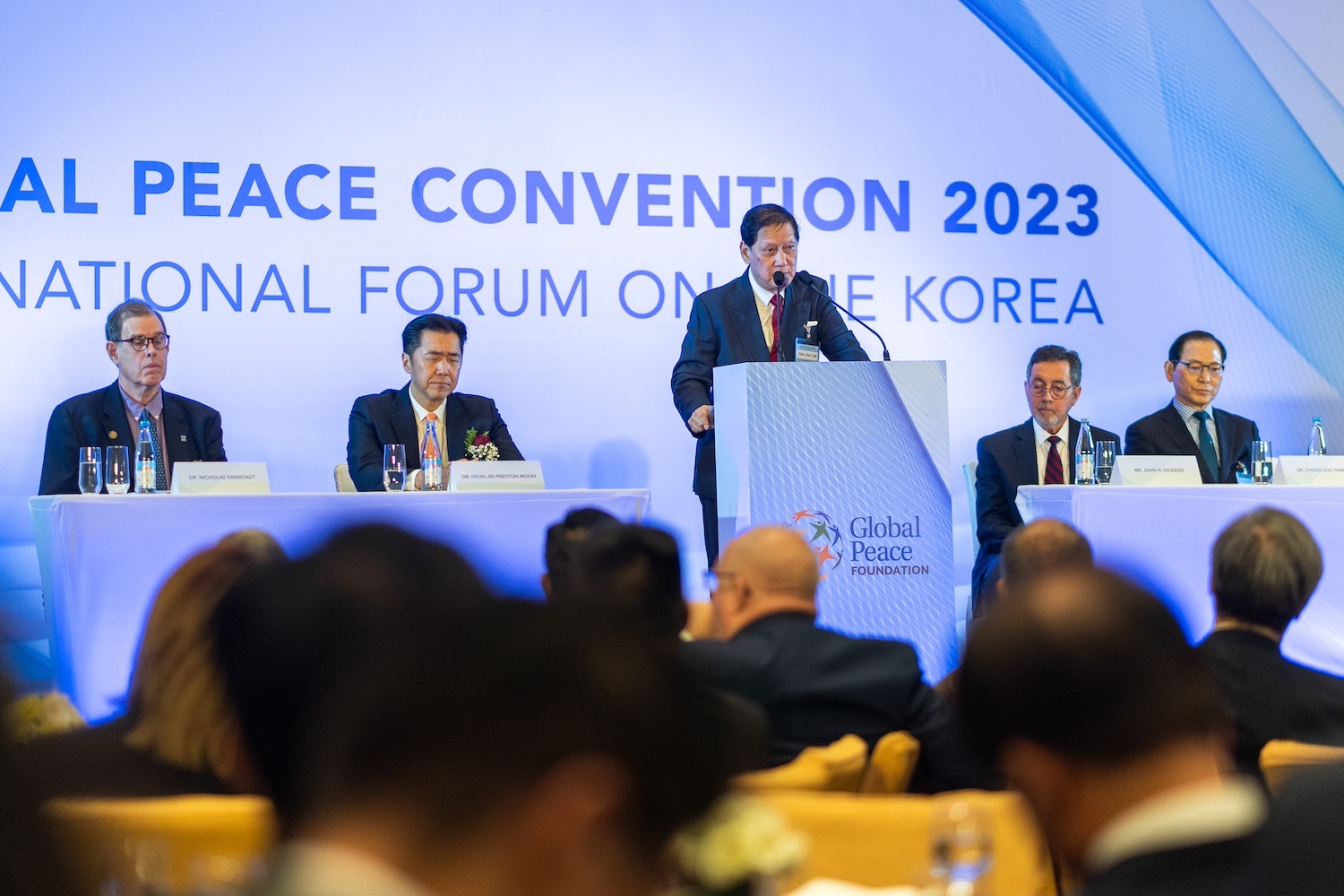You felt it before. A surge of energy flows through your weightless body and manifests outwardly as a smile, a kind gesture, or even a hug to a stranger.
The feeling is hope.
As cynicism, fear and pain subside, a complex problem now seems solvable or a distant goal seems attainable.
Hope was the prevailing sentiment at the International Forum on One Korea, part of the 2019 Global Peace Convention in Seoul. Humanitarians, scholars, experts, and civic and religious leaders convened from around the world to reflect on the March 1st Korean Independence Movement and discuss a path forward for Korean reunification.

Dr. Hyun Jin P. Moon articulates a framework for peaceful reunification of the Korean peninsula at the Global Peace Plenary
“Let us once again be reminded of the sacrifices that our forefathers were willing to make, for a dream, a dream of creating an ideal nation that can bring world peace to the world. That dream is the Korean Dream.” Dr. Hyun Jin P Moon, Founder and Chairman of the Global Peace Foundation, articulated a vision for a unified Korea.
During the forum, participants shared their hope and conviction for reunification based on the Korean Dream. However, the key to unifying the Korean people is in first articulating the Korean Dream as John Everard, Former British Ambassador to North Korea, pointed out. “We all need to understand that when we talk about the Korean dream, there are at least two dreams. The North’s dream and the South’s dream.” Everard spent time in North Korea and discerned that the vision for unification was radically different in the North than in the South. He emphasized the importance of communicating the Korean Dream to the wider population in the North and South.
The Korean Dream
Dating back to Korea’s founding mythology, the universal ideal of Hongik Ingan, meaning “to broadly benefit humanity,” served as a unifying force at pivotal moments in Korean history. During the March 1 Korean Independence Movement of 1919, Koreans from all walks of life rallied together to “peacefully demonstrate their right to fulfill their providential destiny to create an ideal nation that can serve all mankind,” Dr. Moon shared.
The Korean Dream, a vision for a free, unified nation embodying Hongik Ingan was in the hearts of the Korean people 100 years ago. Their declaration of independence reflected this vision. Dr. Moon conveyed, “Thus, the declaration of independence that the Koreans offered at that time, did not seek hatred and enmity towards Japan, nor did it seek retribution towards Japan or any colonial power. It sought to build a better world, a world rooted in friendship and mutual understanding that could inspire the entire world to peace.”
Support for Korean Reunification
After the One Korea panel discussion, two North Korean defectors shared their stories and views on unification. One woman stated, “I don’t think we should show hate towards each other….but instead, show each other love.” Social and cultural differences between North and South Koreans exist, but the Korean people have thousands of years of shared history, language and culture. The One Korea Forum provided participants from the North and South the opportunity to reconnect to this shared heritage and find a path forward as one united people.

Audience at the International Forum on One Korea
Outside the circle of reunification activists and enthusiasts, some may question why reunification is even necessary. In response to that question, Deputy Speaker of the Ugandan parliament Jacob Oulanyah said, “Korean Reunification is simply the right thing to do, the natural thing to have, and we are late. 100 years is a long, long time.”
Deputy Speaker Oulanyah was one of many prominent world leaders in attendance at the Global Peace Convention, showing support for the Korean people on their journey toward reunification. Dr. Moon encouraged attendees from around the world to join in on this universal dream. “And that dream should be the dream that resonates and inspires a whole new generation, not only of Koreans but of all people around the world to dream of a better world of peace, harmony, and co-prosperity for all nations around the world.”
The Global Peace Convention 2019 was co-convened by the Global Peace Foundation, Action for Korea United, and One Korea Foundation in partnership with the National Unification Advisory Council of the Republic of Korea from February 26 to March1.



